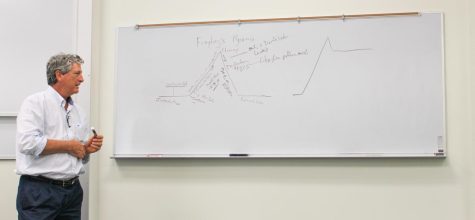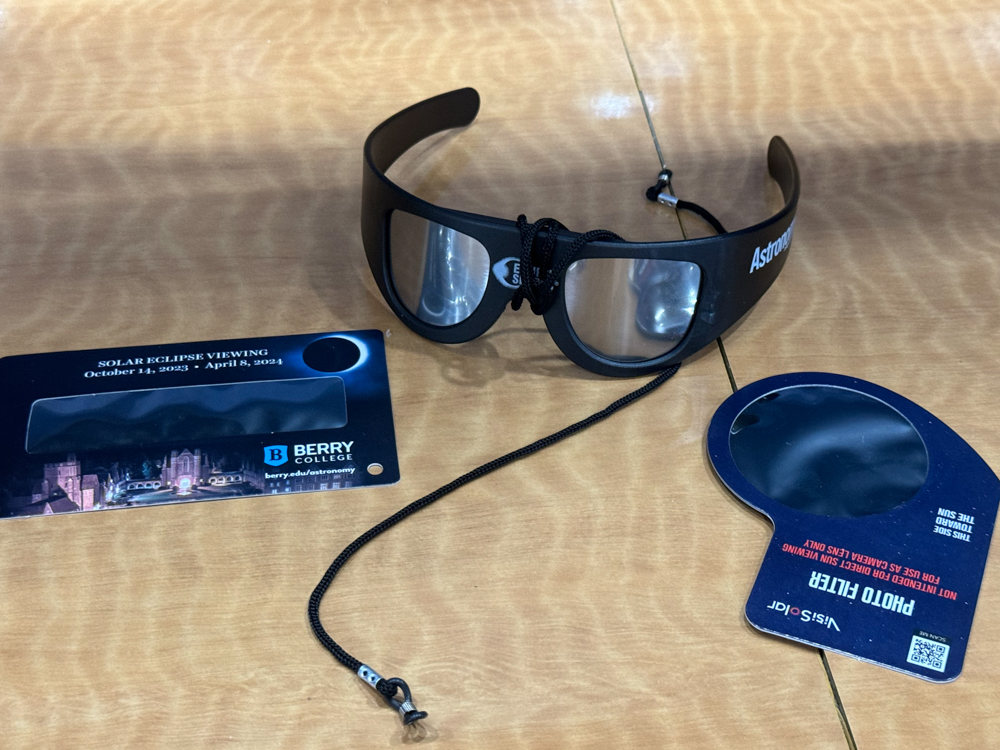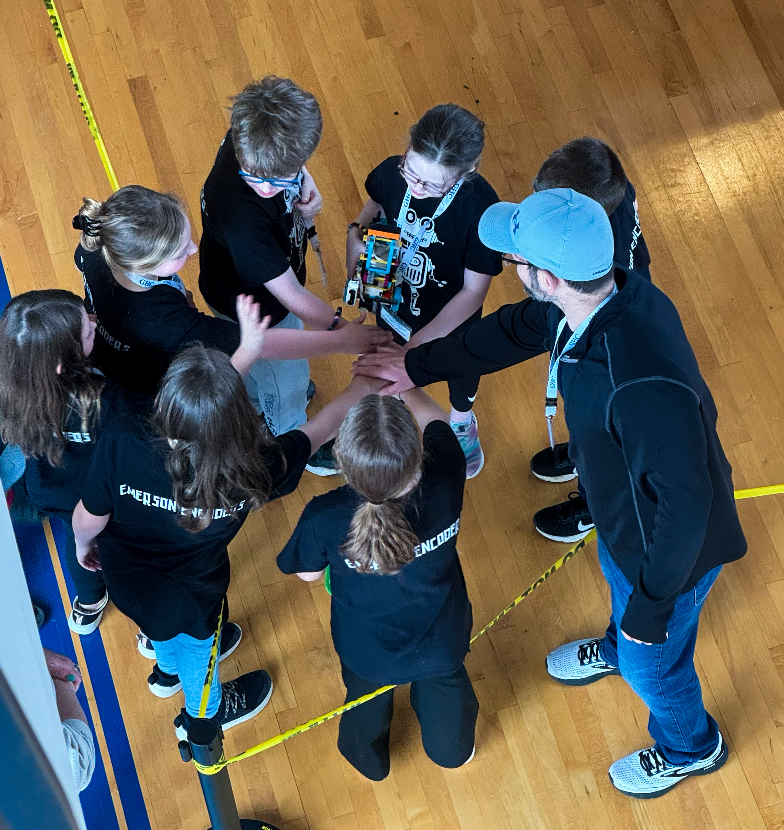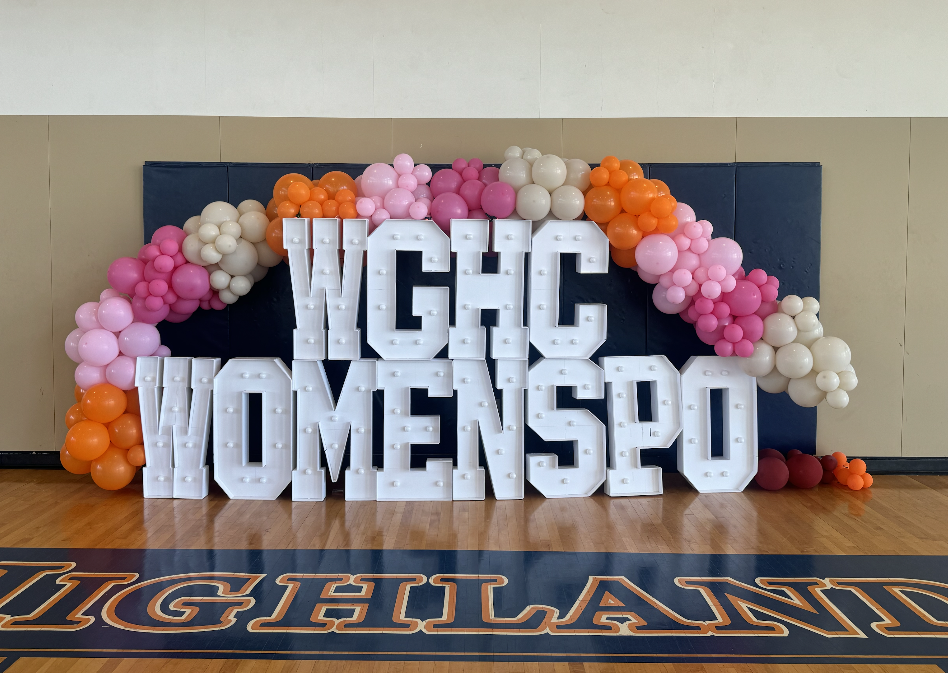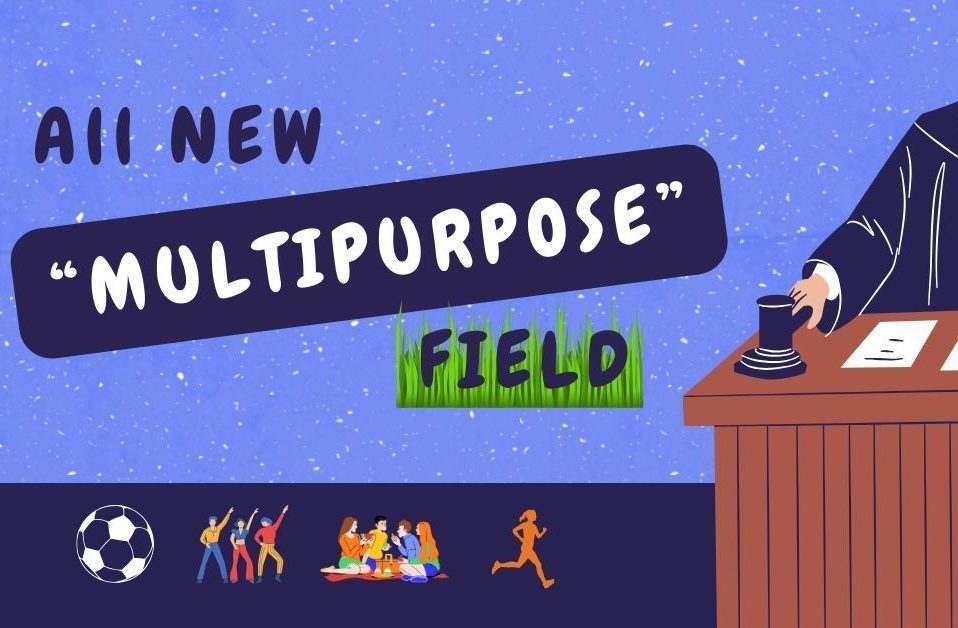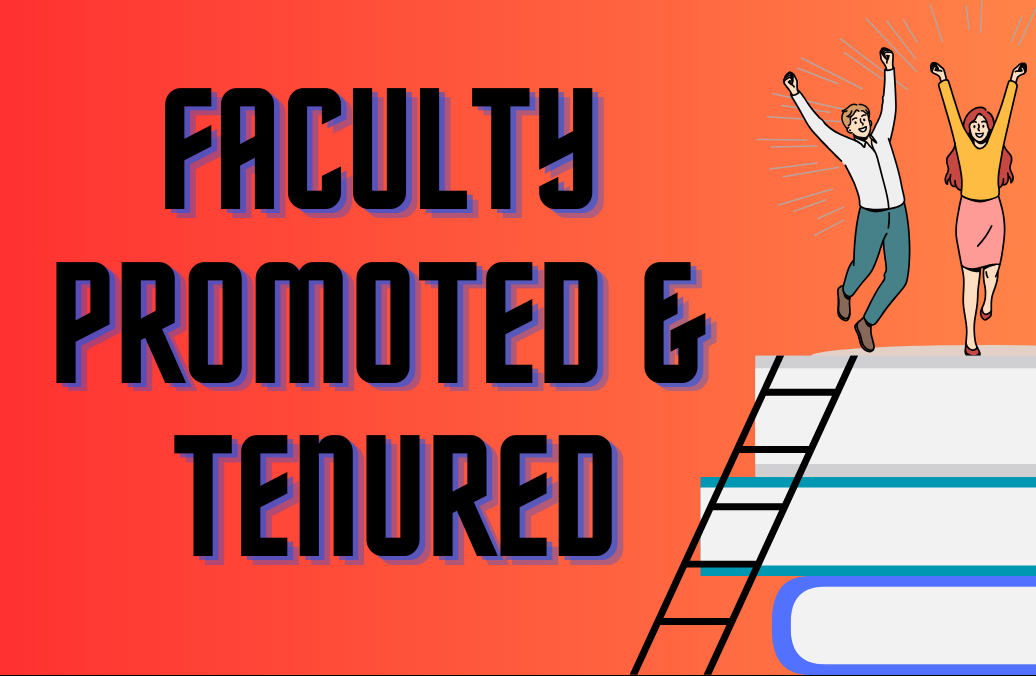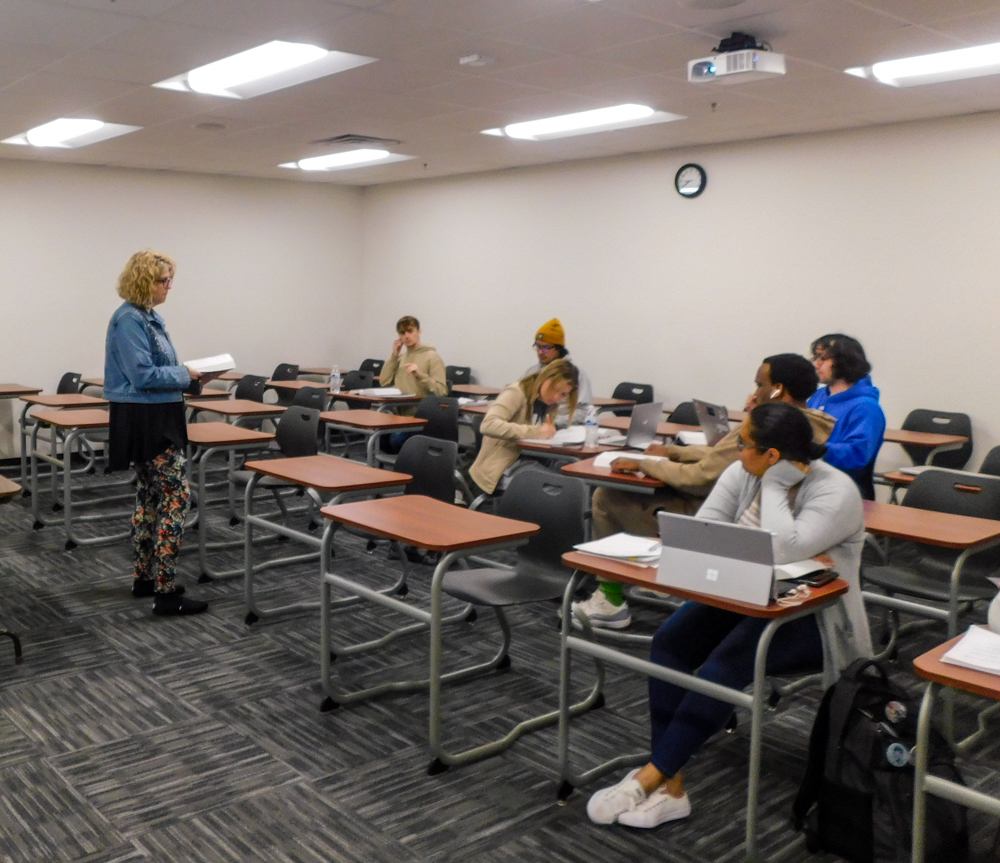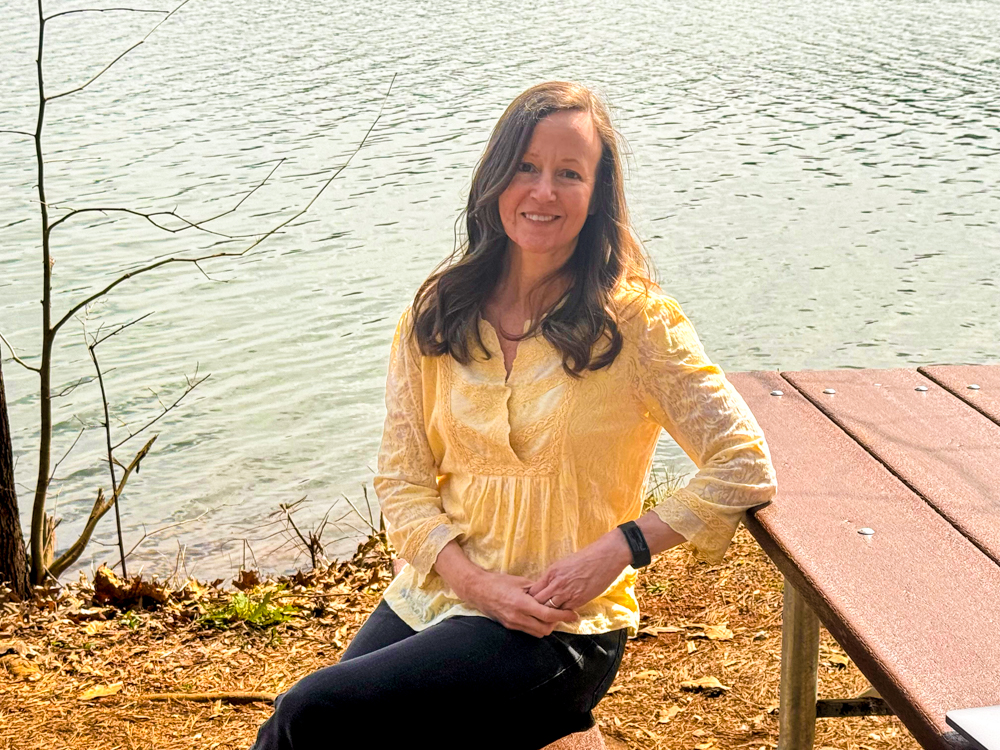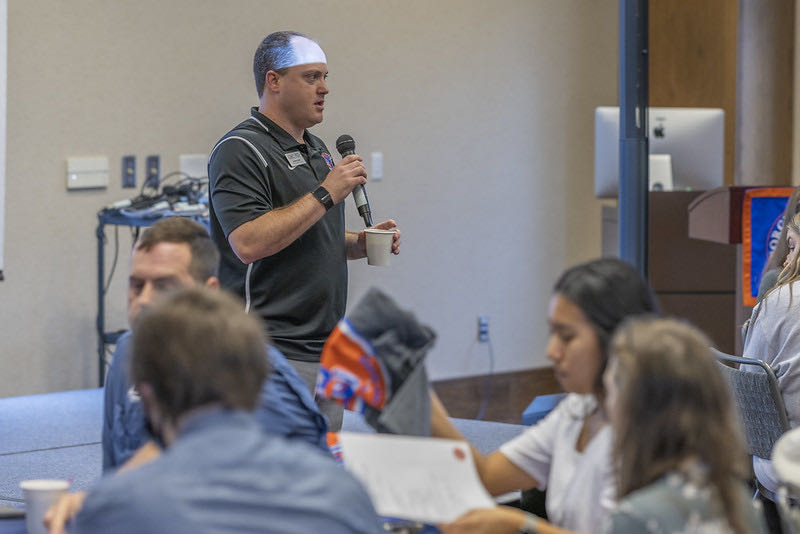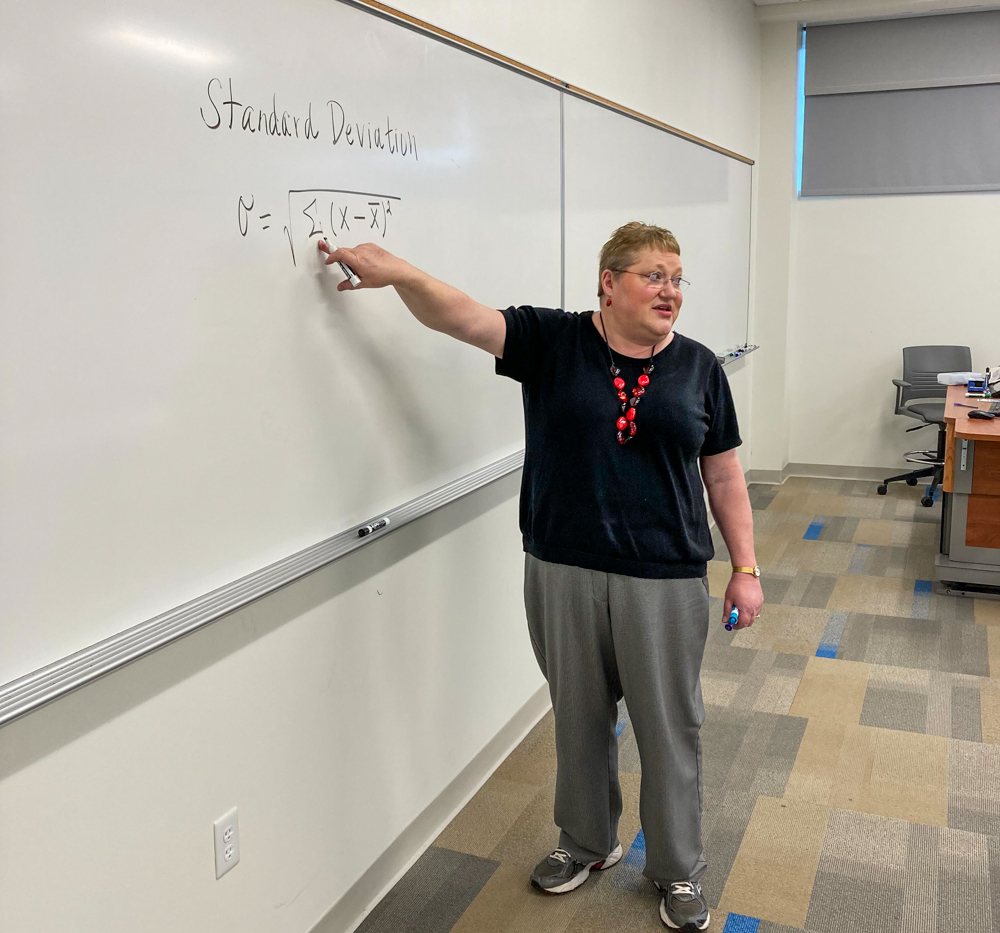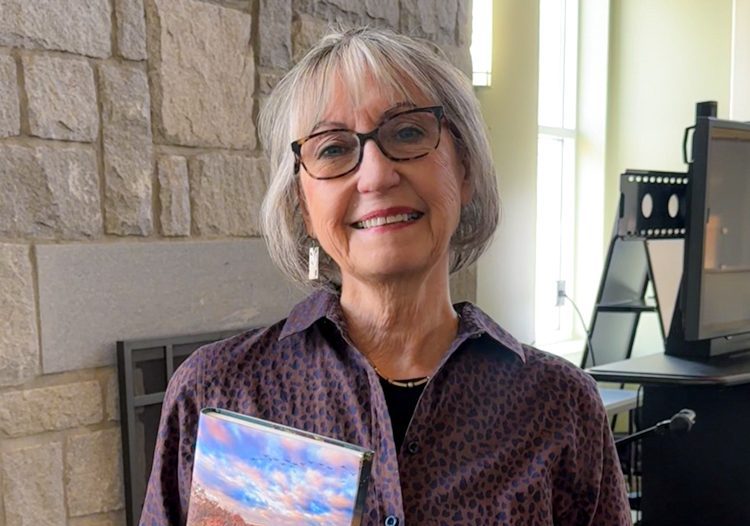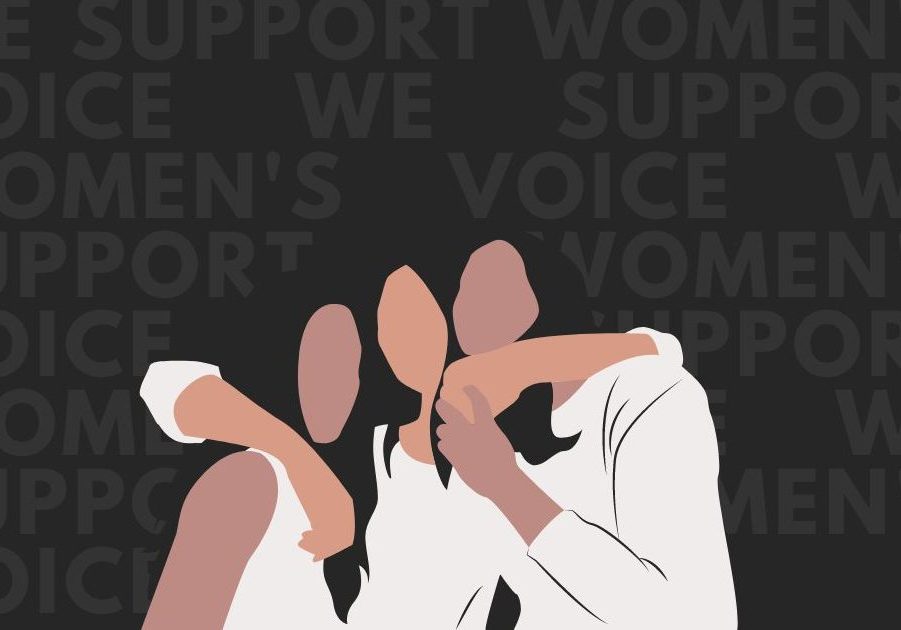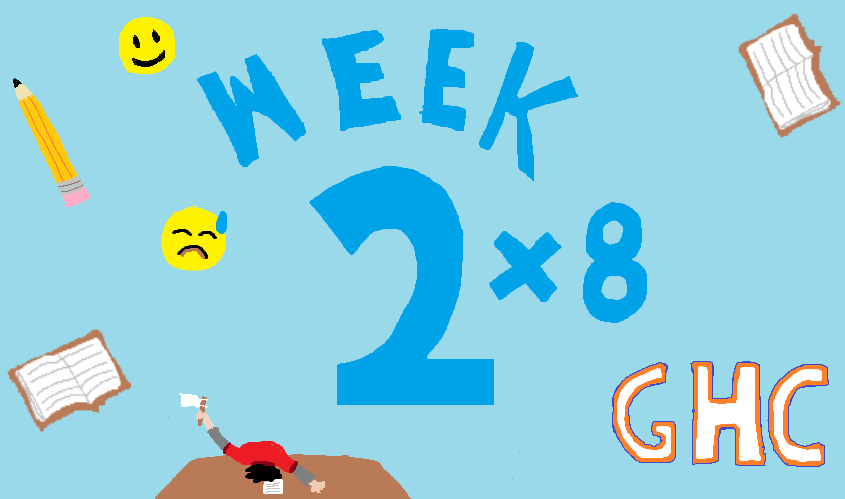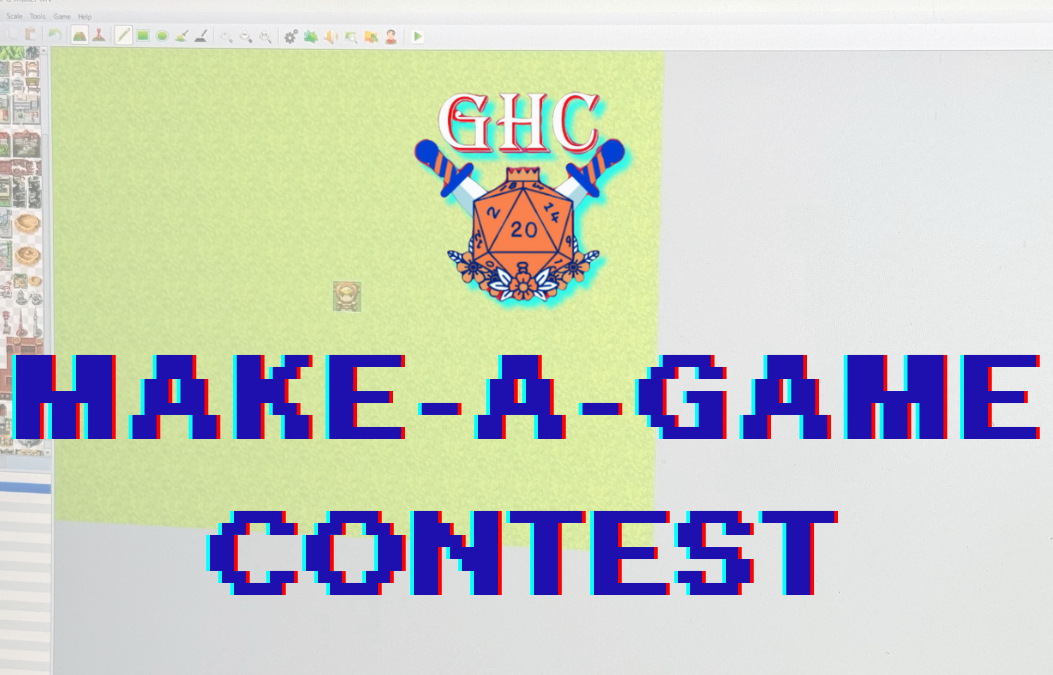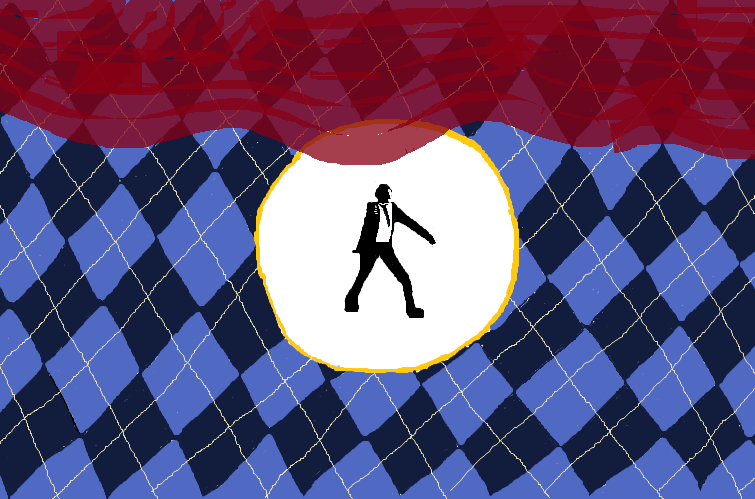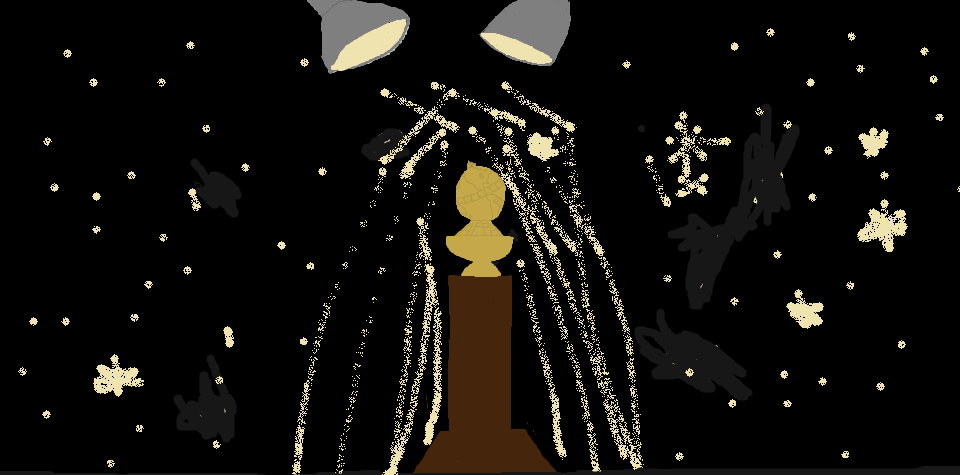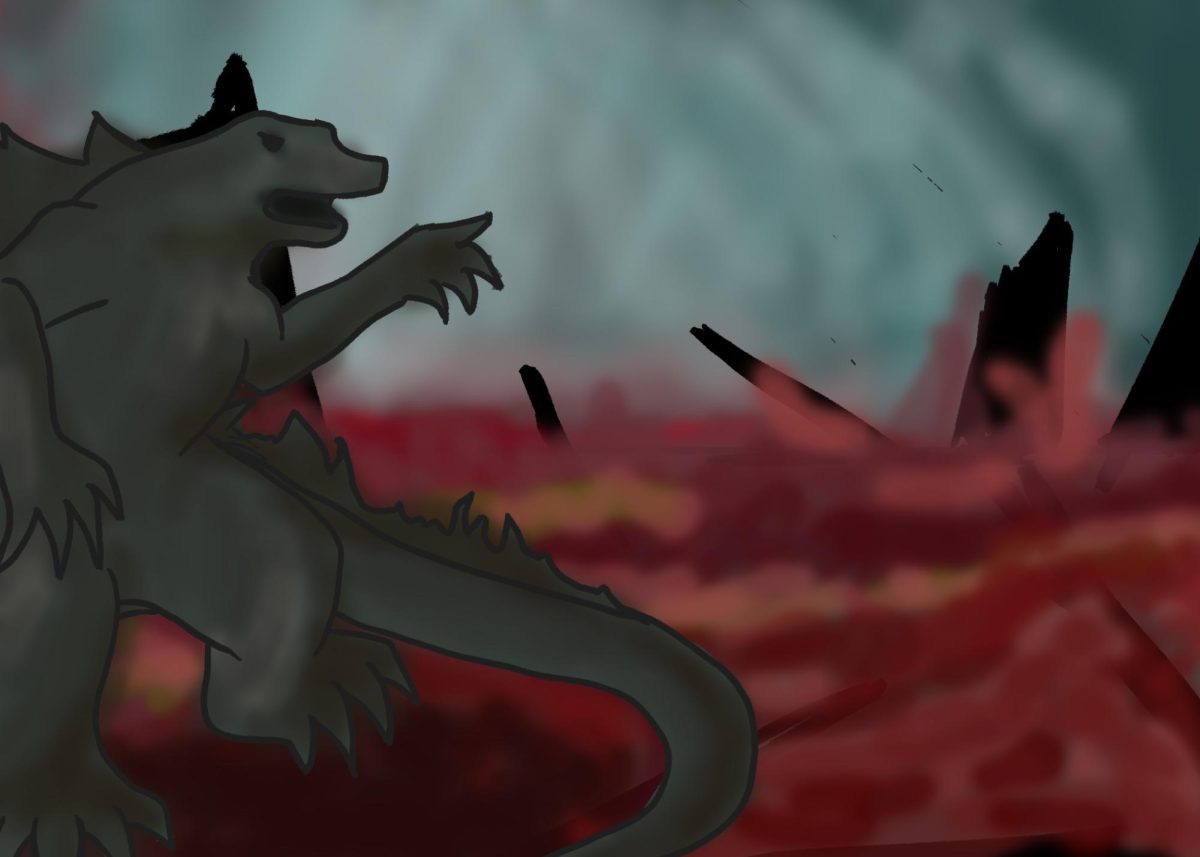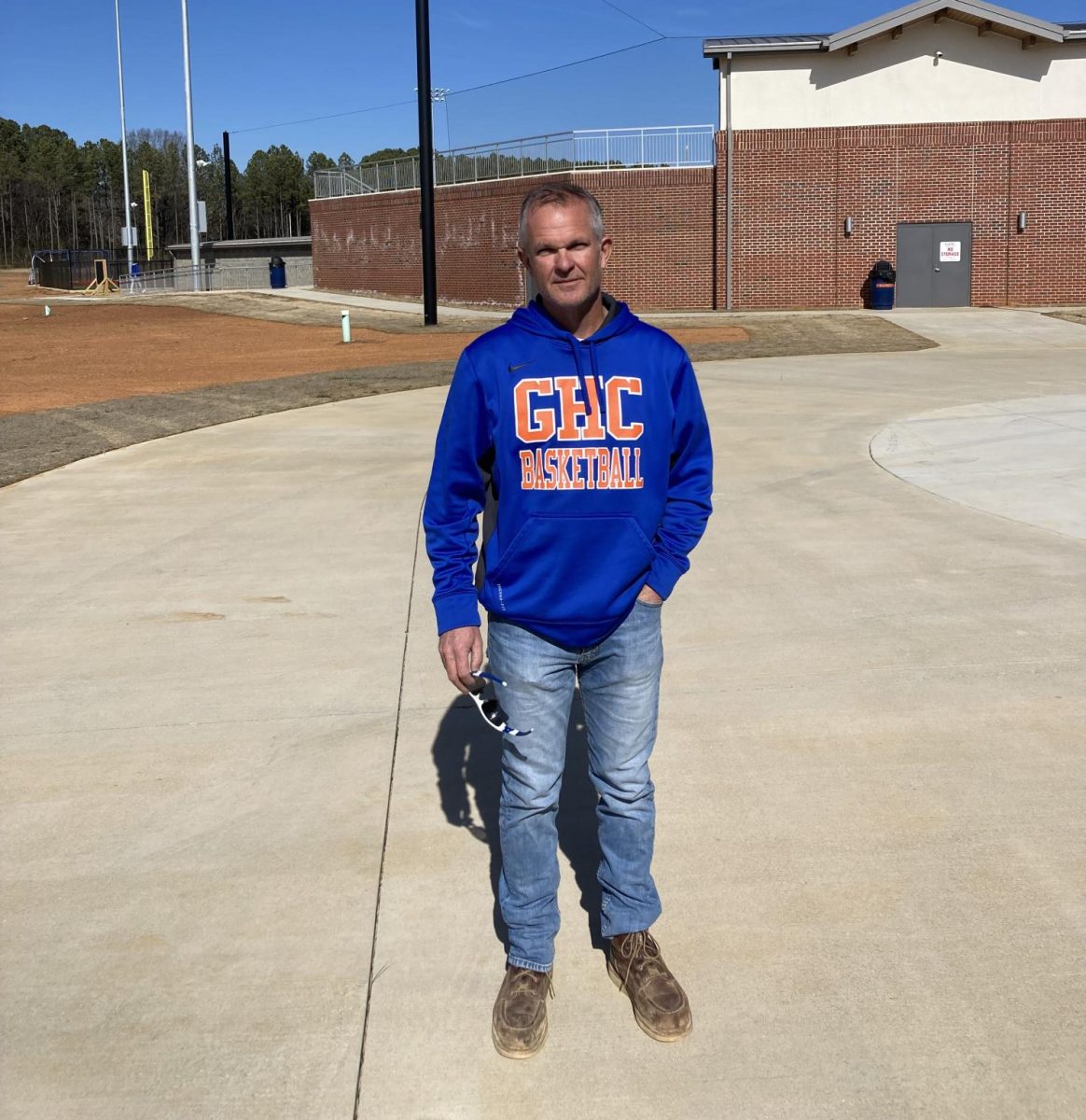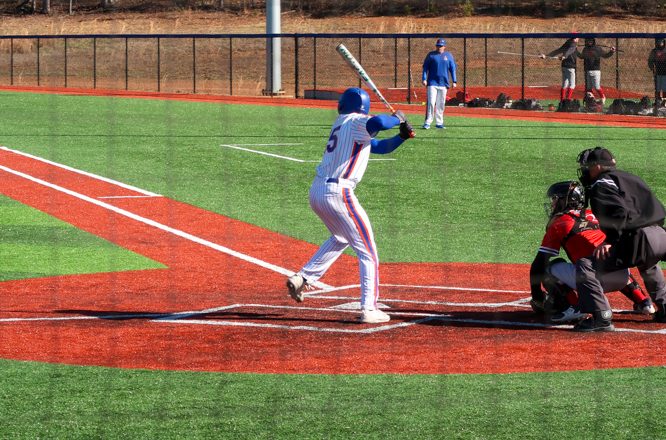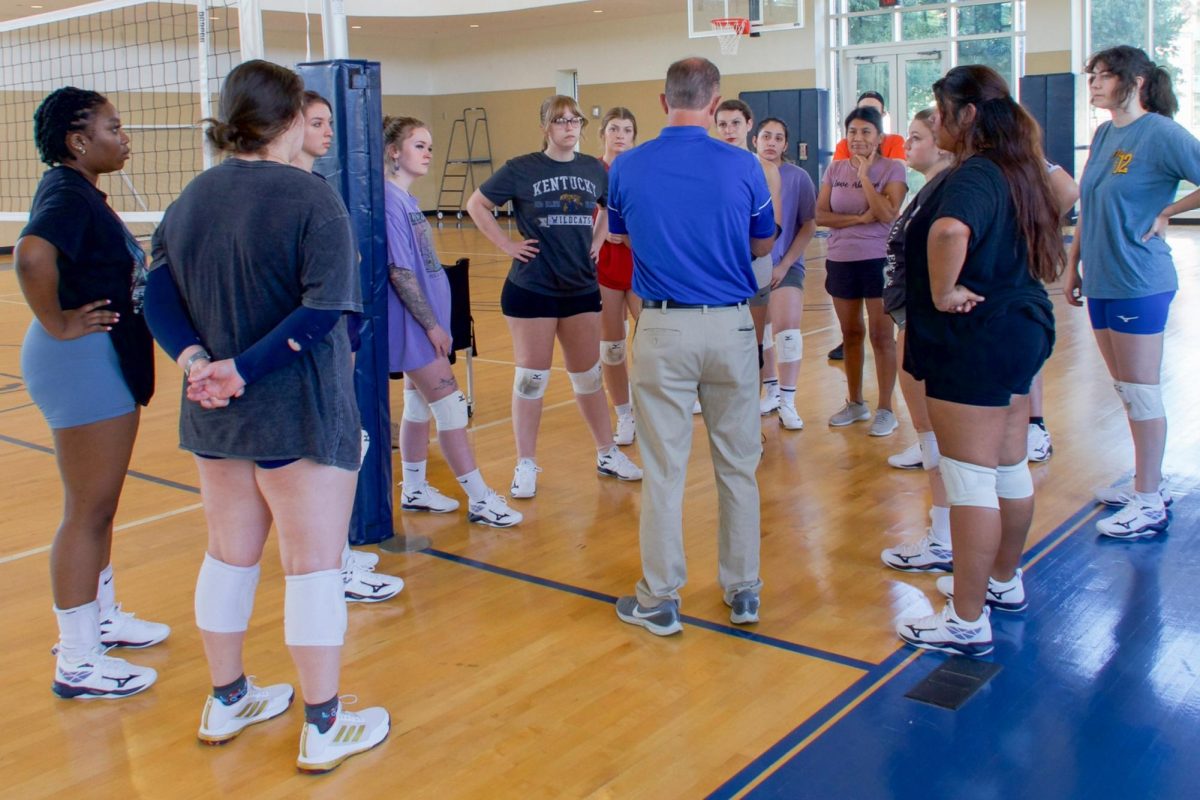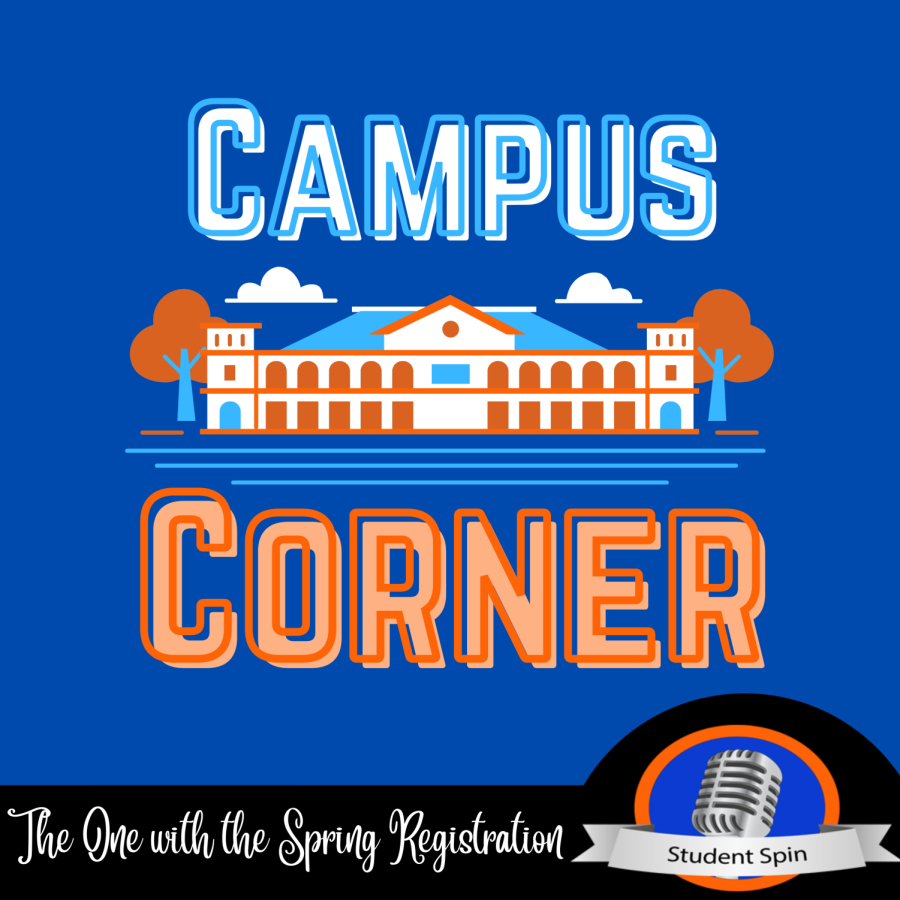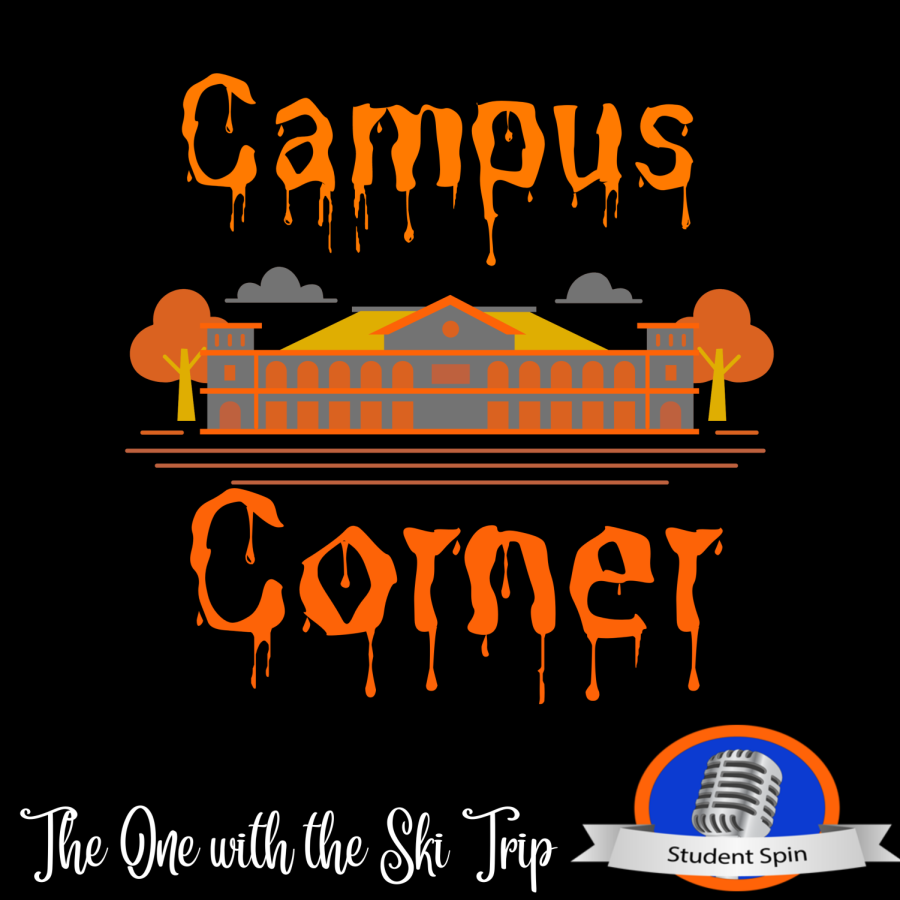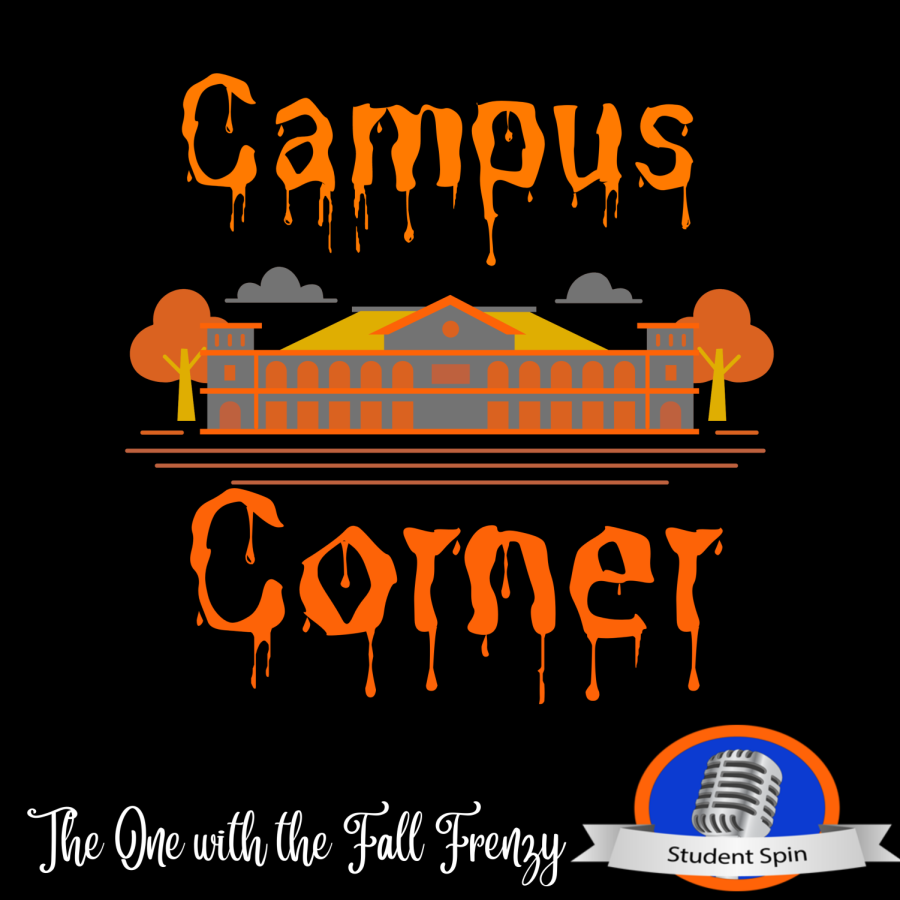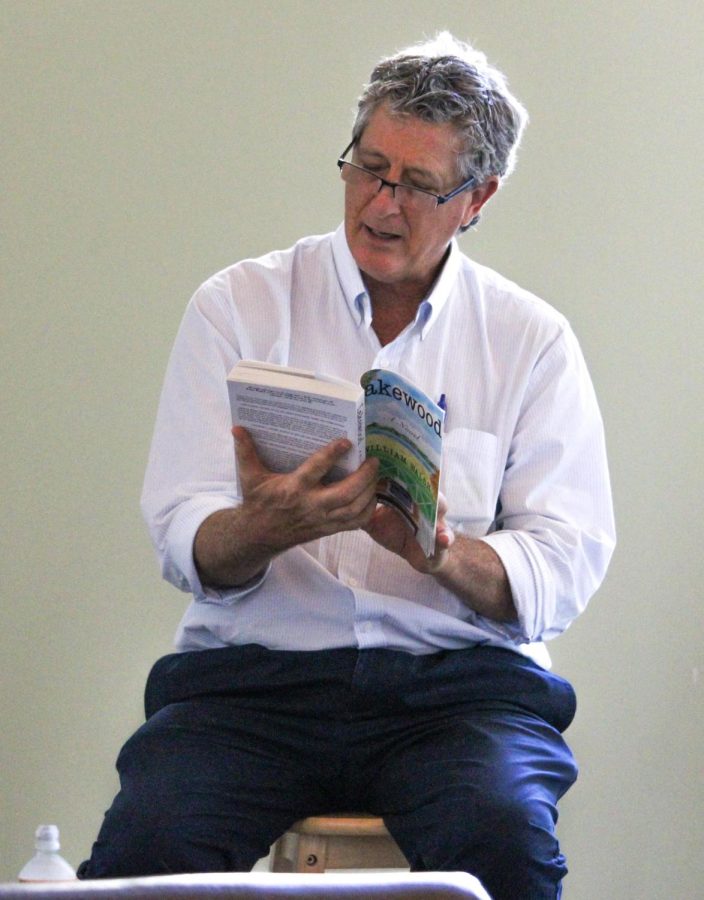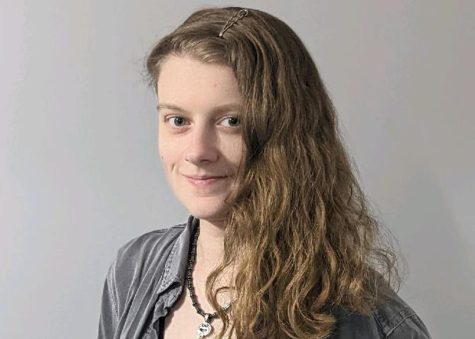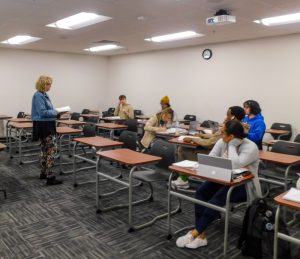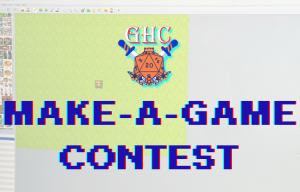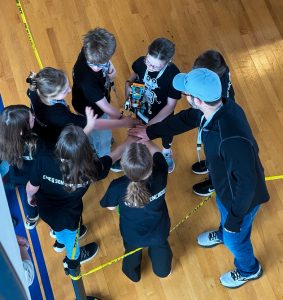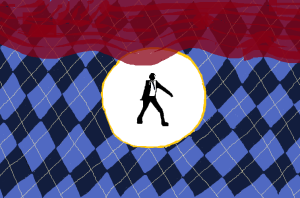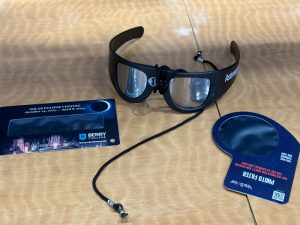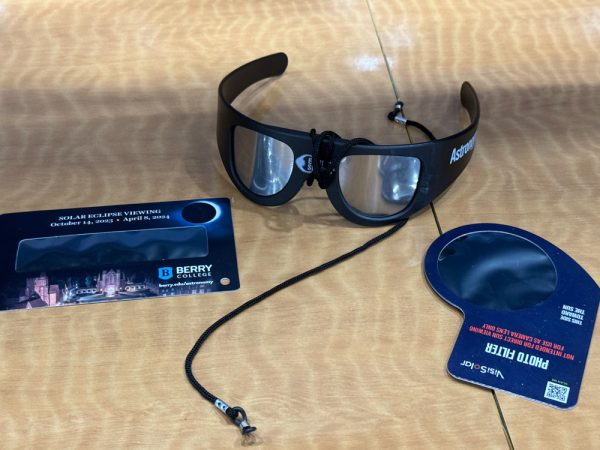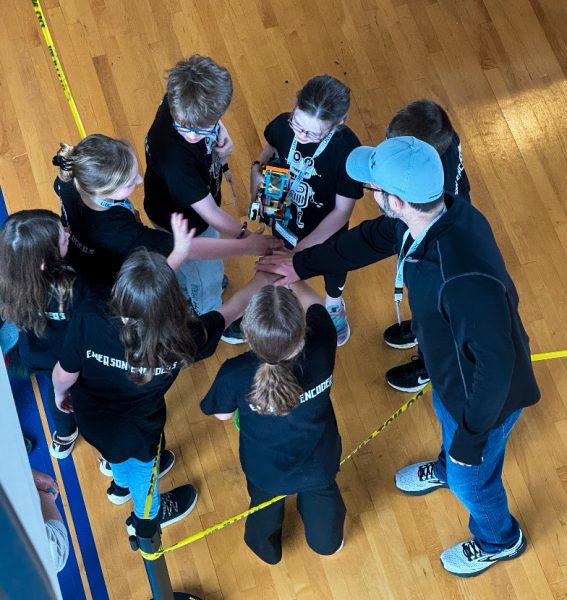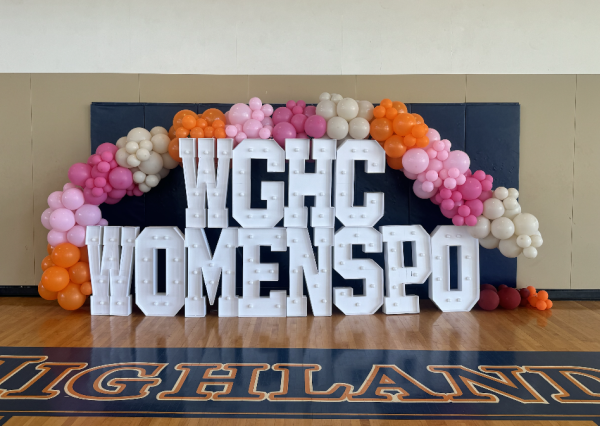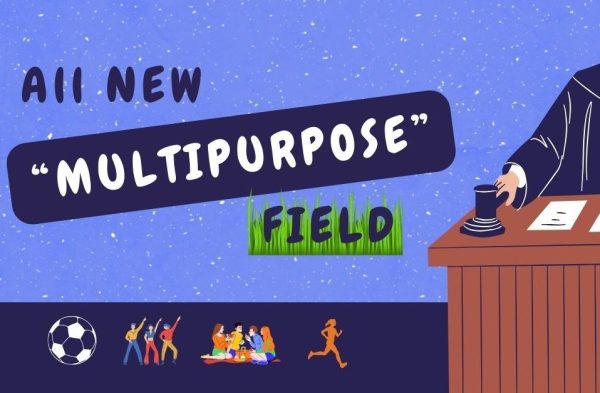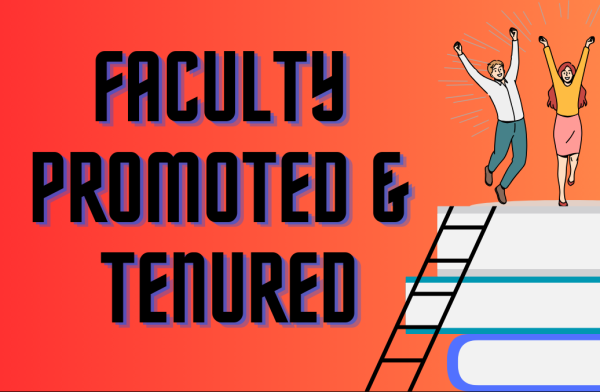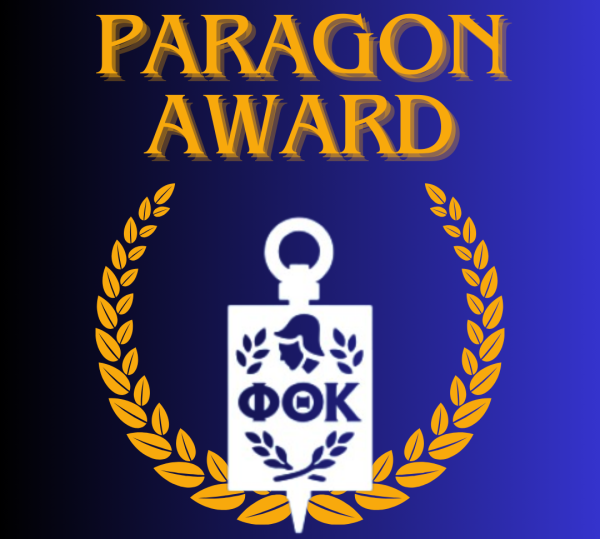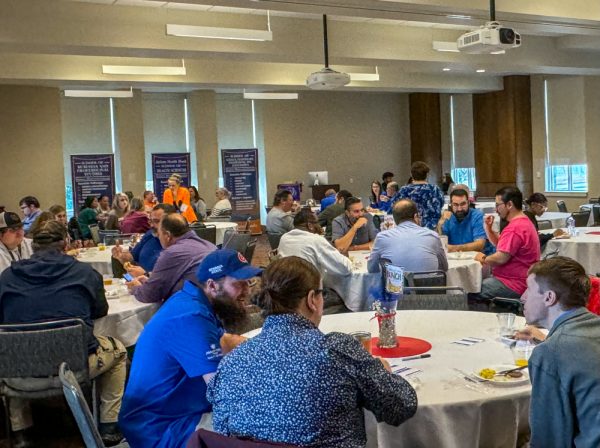Published author and English professor holds book reading for new novel and writing workshop
William Walsh reads excerpts from his debut novel, “Lakewood” to students and staff. He has written and published seven non-fiction books.
October 10, 2022
On Sept. 21, English Professor at Reinhardt University and published author, William Walsh, held a book reading of his new novel “Lakewood” in the Cartersville campus library. He conducted a creative writing workshop following the reading.
Students and faculty joined both sessions in person and online through Zoom. Free copies of the novel were available to attendees.
“Lakewood” was released on April 4, after 39 years of on-and-off writing. It takes place in Lakewood, New York, in 1973, where Walsh lived in his childhood. He recreated the city as it was during the time and some of the characters are based on people he knew.
“I just had an idea for a story when I was 18,” Walsh said, “and I thought, ‘Okay, that’d be a great story for a novel,’ but didn’t know how to write a novel.”
Walsh said he came across the old manuscript of 1500 pages during the pandemic quarantine of 2020 and decided to pick the novel up again while he had nowhere to go and nothing to do.
“When I found it, I remembered how much I liked the main character and I liked the love interest; and I thought, ‘Well, maybe I could rewrite this with the knowledge and skill that I have now,’” Walsh said.
The story follows an 18-year-old boy, Robert, who returns to his hometown for college and ends up house-sitting at his childhood home where his sister died. Walsh said the genre of the novel is a cross between commercial fiction and literary fiction.
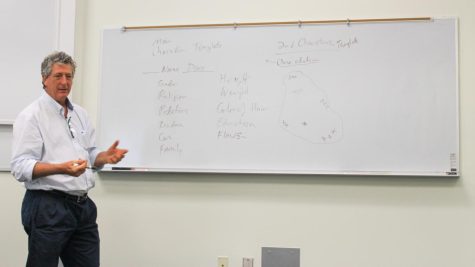
“The theme is about… going back into the past to find the truth,” Walsh said. “[Robert] goes back and he learns the truth about his sister dying and he starts to have some semblance of reconciliation because he’s never reconciled her death.”
Much of the content in the novel is a result of Walsh’s own life experiences.
“I enjoyed having him give examples of life moments… and how he put them into a story,” Hailee Surat, a health science major at the Cartersville campus, said.
The novel is written from the first-person point of view of Robert’s journal entries that he types out on a typewriter for the duration of the story.
“I just like the style that he wrote it in and the way he wrote it was very easy to understand…” Surat said. “We were very clearly able to see the whole entire story for what it was.”
GHC Academic Advisor Stephanie Marchant attended the reading but missed most of the context of “Lakewood” because she arrived near the end of the session. She said she was “curious to figure out what was going on” and “it’s one of the reasons why I’ll read the book.”
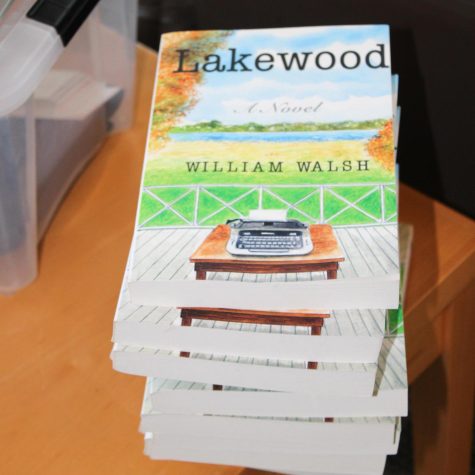
Walsh’s writing workshop after the book reading taught attendees how to structure a story and highlighted the importance of supporting characters, using “The Color Purple” as an example.
He showed that a story can have deviating points of climax, rising action or resolution depending on the content of the story. He also showed that supporting characters can be the crux of a story and some plotlines depend on character action to move forward.
“He’s a great resource for finding a voice and a character and figuring out how to take that voice and put it through a character,” Marchant said. “Great instructor as far as that goes.”
Marchant met Walsh at Reinhardt University before working at GHC. She used to recruit students for the university’s Master of Fine Arts for Creative Writing program, which Walsh is the director of.
“If anybody is pursuing writing at the master’s level, his MFA program is really strong and they should consider it,” Marchant said.
Walsh teaches several writing classes at Reinhardt University, including creative fiction and non-fiction, poetry and editing and publishing. He will be teaching a new Banned Books in America course next year.
